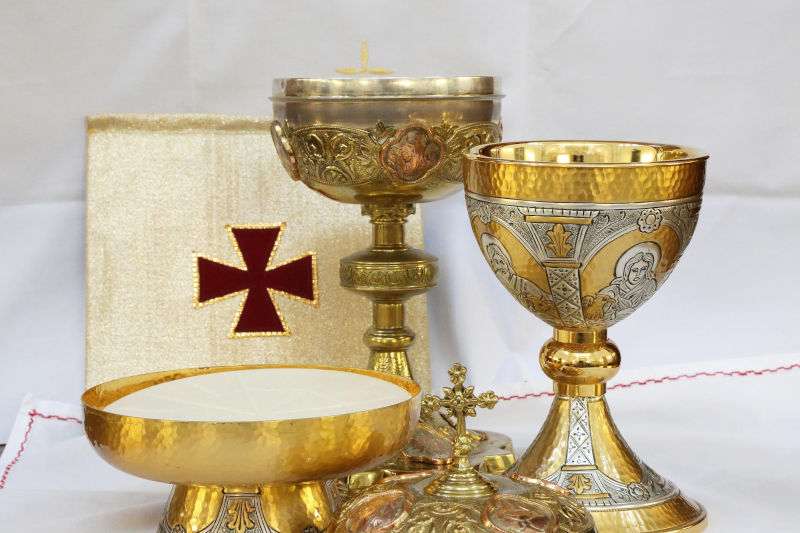A ground breaking week in the Australian Catholic Church
July 13, 2022
Last week was ground-breaking for the Australian Catholic Church. Its Plenary Council was a major and critical event for reform within the Church, and it concluded with some positive action after four long years.
There has been much criticism of the process along the way. Nevertheless, the Plenary endorsed the Uluru Statement of the Heart and this has been applauded by all.
There was though, little hope of change on other crucial issues and as the Plenary moved into the Second Assembly even the Framework document outlining the final motions that is forwarded to Rome lacked clear and decisive action for change.
However, on the fourth day of the Second Assembly the momentum built as motion 4.5 concerning the equality and dignity of women and men in decision-making and ministry, including action to ordain women to the deaconate, failed to be passed by the bishops in the deliberative vote despite the majority of the assembly passing the motion for consultative vote.
It failed by only four votes to achieve the two thirds majority required to ratify the vote, even though the majority of bishops at the assembly had voted for it.
Members were bitterly disappointed. There had been much discernment and relationship building through both assemblies, and people were trusting the process. The motion was very polite and well-reasoned and the key action required was to support the ordination of women to the deaconate, a practice that was common in the early church for hundreds of years and has recently been revisited by scholars and two Vatican commissions.
Given Pope Francis has persisted with the issue by appointing a second Commission, it seemed a likely path to pursue, a pathway to inclusive ministry that could get support from other parts of the church, including New Zealand, Amazonia and Germany.
Members had hoped this issue of womens participation would be passed, it had been articulated since the early consultations, very passionately and clearly, and was the key issue arising from the17,600 submissions and consultations attended by some 200,000.
Renewal groups and scholars had consistently emphasised the centrality of this issue of equality for women over four years not just as a governance, ecclesial and gender balance issue, but one that would perhaps improve the churchs credibility in the world and augur against the clericalism that Pope Francis deplores, but also start to make it relevant to future generations. They see it as hypocrisy to be part of a church that has broken trust and is so outdated on so many of the issues that impact on peoples daily lives. The failure of the motion to pass was intolerable to those who had given their all during this process and for years before.
Outside the assembly, the renewal movement mobilised to ensurethat the rejected motion be rescinded and a new motion redrafted.
As I understand it, 60 of those in favour, including Clare Condon, John Warhurst, Francis Sullivan, Fr Frank Brennan, two of the bishops and some priests gathered at morning tea which had followed the declined vote, to discuss a response. When the meeting resumed they agreed to declare that the meeting could not continue without explanation and that it could not be business as usual. Then sixty or more stood and walked to the back of the room requesting that the failed vote be rescinded.
The Assembly agreed to defer the agenda and give time to redrafting the motion which was put to the assembly on the next day. Those attending noted that the atmosphere had changed, it seemed that most of the membership was focussed on trying to get a better outcome.
The redrafted motion was passed by a majority by both the consultative and deliberative voters.
This process and result is ground-breaking, though the motion was weakened, people had had the courage to speak truth to power and others had listened.
This set a precedent. Many of us have worked for decades on the issue of womens equality in the church, largely ignored by most of the bishops. Although I must acknowledge that some have been amazingly supportive. One sent Ordination for Catholic Women a hundred-dollar cheque and that was twenty years ago! Other bishops like Bill Morris, Pat Power and Vincent Long have always stood by the gospel message and many of our priests support us.
This motion is significant because it includes women in the reality of ordination and would gives official status to their ministry. Those ordained to the deaconate can preach within the context of the liturgy, celebrate baptism and funerals, witness marriages and facilitate many other pastoral duties. Women have been functioning in many of these ministries minister already but deaconate ordination would make that official.
So, we will have to see what the next steps will be. Its hard to believe that the inclusive, humble, transparent and non-clericalist church we all yearn for, will arise from the model of priesthood now in place. This last week gives hope and we will keep calling on Holy Spirit.

